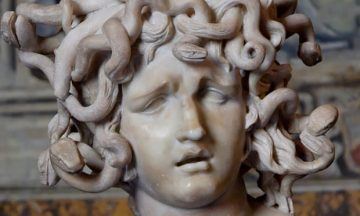Stephanie Merritt at The Guardian:
 For the past few years, Natalie Haynes has been building a career out of rescuing the women of the ancient world from obscurity or cliche. Her most recent Women’s prize-shortlisted novel, A Thousand Ships, told the stories of the women of the Trojan war. With Pandora’s Jar, she returns to nonfiction to examine the origin stories and cultural legacies of the best-known women of classical literature, with the characteristic blend of scholarship and sharp humour that will be familiar to fans of her Radio 4 show, Natalie Haynes Stands Up for the Classics.
For the past few years, Natalie Haynes has been building a career out of rescuing the women of the ancient world from obscurity or cliche. Her most recent Women’s prize-shortlisted novel, A Thousand Ships, told the stories of the women of the Trojan war. With Pandora’s Jar, she returns to nonfiction to examine the origin stories and cultural legacies of the best-known women of classical literature, with the characteristic blend of scholarship and sharp humour that will be familiar to fans of her Radio 4 show, Natalie Haynes Stands Up for the Classics.
All the usual suspects are here, including Helen, Medusa, Jocasta, Penelope and Medea, and it’s striking, considering their stories en masse, how often they have been passed down the literary and artistic canon as scapegoats for the mistakes of men, or else muted altogether. Take the title character, who never had a box in the original version (the confusion is likely the fault of Erasmus in the 16th century, mistranslating the word for a large jar), and whose name means simply “all-giving”.
more here.
